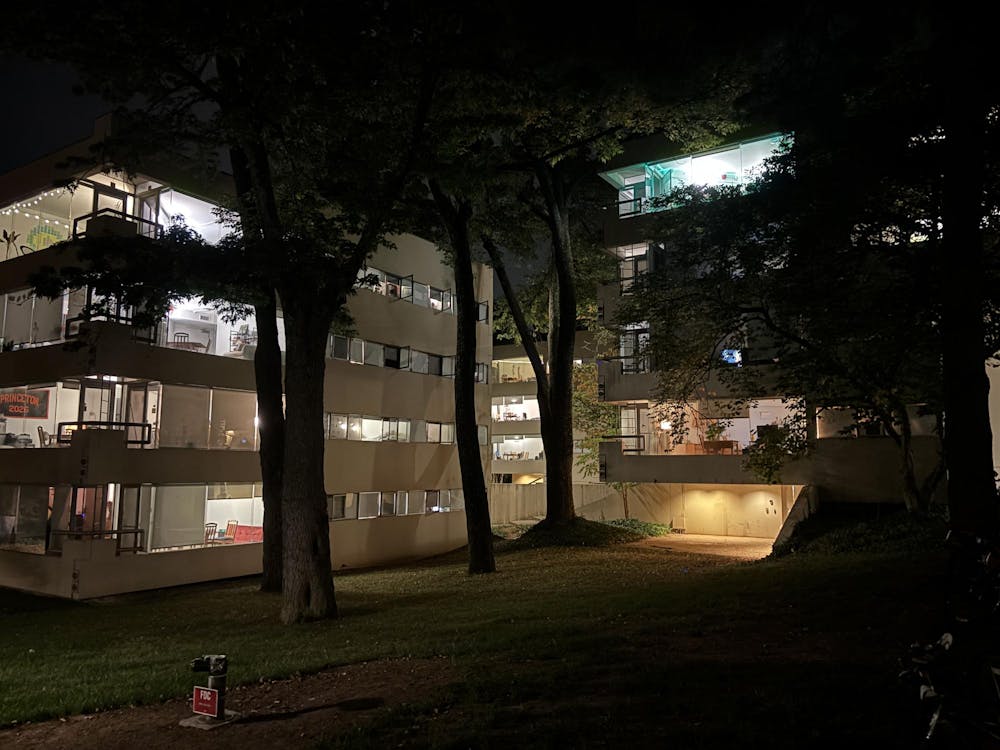Some students will see reductions to their financial aid refunds in future academic years as a result of paying for a University meal plan, Director of Financial Aid Liz Badger said at Monday’s Council of the Princeton University Community (CPUC) meeting. The meeting was dominated by questions on changes to campus dining announced earlier that morning.
An email sent to the Classes of 2027 and 2028 announced that all students living on campus will be required to purchase a meal plan beginning in the 2026–27 academic year, effectively eliminating independent status. The University will also institute a new Block 32 plan of two meal swipes a week, available to students on eating club or co-op plans. Students not affiliated with an eating club or co-op will have to buy either an unlimited meal plan or the new Block 160 plan of 10 meals per week.
The University will expand the financial aid allowance to account for the cost of an eating club plan plus Block 32, Badger said. However, students who receive financial aid in excess of their University bill would see changes in their refund, which some independent students put toward grocery and food costs.
“The students who will see a change are students who are independent, who are opting into a meal plan for the first time as a junior or senior, as they will see the charge for the meal plan, and because they’re not independent status anymore, they will have a reduced refund,” Badger said.
Reece Lapas ’27 said that this money was “incredibly helpful during times when we don’t have access to the dining hall, especially the winter break and summer.”
“The idea that those who have more vulnerable financial situations will essentially have to eat the meal plan rate’s relatively high price is confusing to me, especially because Princeton lends itself to be a very financially generous institution,” Lapas added.
The amount of the reduced refund was not immediately clear. University spokesperson Mike Hotchkiss told the ‘Prince’ that the pricing of the Block 32 and Block 160 plans would be “consistent per-meal pricing of current meal plans.” Based on the cost of the Block 105 plan, which is $1,690 per semester, the Block 32 plan could cost $515 per semester.
The changes immediately drew backlash from independent students.

“I also just know a lot of people have concerns about food and controlling their food and allergies, where it’s often just nicer and easier to be totally in control [of your diet], and I think it will be tough to have to resign yourself to the choices the University gives you,” Aster Haviland ’26 told the ‘Prince.’
In the first CPUC meeting of the academic year, just hours after the announcement, there were many questions regarding the dining changes.
Vice President of Undergraduate Student Government (USG) Aishwarya Swamidurai ’26 asked a question regarding the impetus behind the change and whether there was student engagement influencing this decision.
Vice President of University Services Chad Klaus stated that these changes “are highly responsive to the set of feedback that we were receiving both in addressing affordability and access and the ability for students to move throughout those various groups in their junior and senior year.”

A proposal to expand dining options was first announced September 2022, with a dining program piloted in 2023 that gave certain upperclassmen five flexible meal swipes per week at any co-op, eating club, dining hall, or on-campus store like Late Meal. In June 2024, a study done by the Huron Consulting Group that solicited student feedback proposed the University require campus dining plans for students who live on campus.
“In addition to the Huron study, we had a dining pilot, which was done in coordination with the USG, as well as extensive conversations with the University Student Life Committee,” Klaus told The Daily Princetonian after the meeting.
Some students, however, expressed concerns that the new plan is not beneficial to everyone.
“The University is trying to put so much emphasis on dining halls and the residential college community. It’s just nice to be able to handle it yourself,” Katrin Brinkman ’26 told the ‘Prince.’
Cynthia Torres is an associate News editor, and archives contributor. She is from New Bedford, Massachusetts and typically covers University administration. She can be reached at ct3968[at]princeton.edu
Benedict Hooper is a News contributor for the ‘Prince.’ He is from Greenwich, Conn. and can be reached at bh3193@princeton.edu.
Luke Grippo contributed reporting.
Please send any corrections to corrections[at]dailyprincetonian.com.








